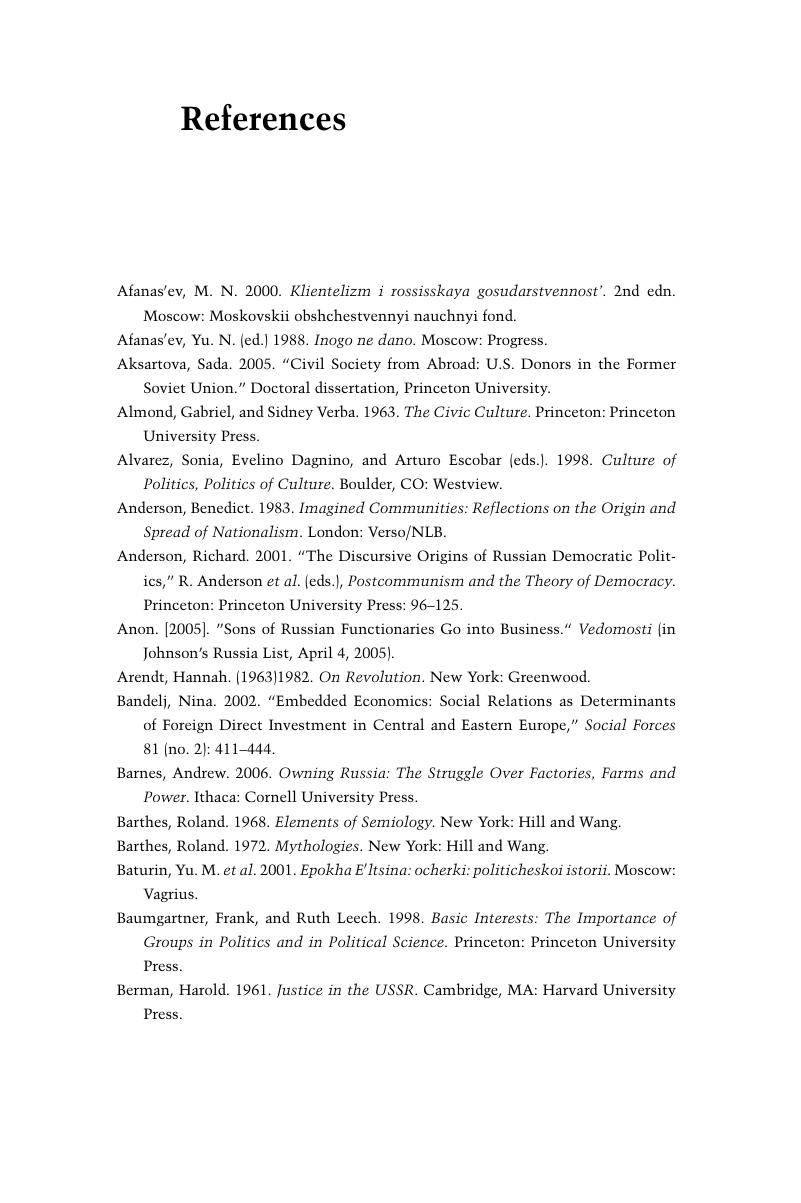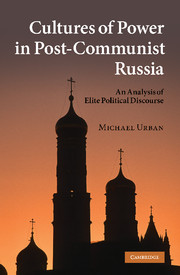References
Published online by Cambridge University Press: 07 September 2010
Summary

- Type
- Chapter
- Information
- Cultures of Power in Post-Communist RussiaAn Analysis of Elite Political Discourse, pp. 197 - 211Publisher: Cambridge University PressPrint publication year: 2010



